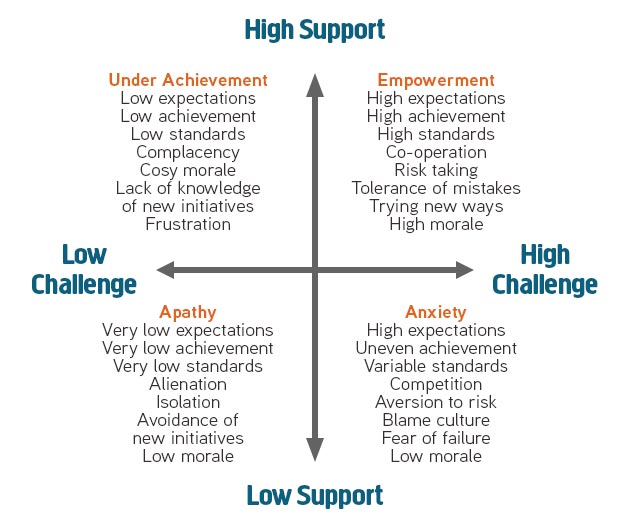Andy Trainer
20 Nov 2014
Herzberg's Two Factor Theory
When you ask any group of workers what motivates them to come to work, at least one and probably most will include 'money' in the response. Pay is a big issue for most people and is certainly a reason why people go to work, even sometimes staying in jobs they don't like. But is it a motivator?
Herzberg's Two Factor Theory suggests that there are two different sets of factors that determine job dissatisfaction and job satisfaction.
Herzberg's Two Factor Theory
| Satisfiers/Motivation Factors | Dissatisfiers/Hygiene Factors |
|---|---|
|
|
The theory is that true motivators, when present, lead to satisfaction and motivation. The suggestion is that people will work harder, be more focused and be more ready to put themselves out if the rewards include true motivators such as personal growth, more responsibility or a greater sense of achievement.
Hygiene factors work in the opposite direction. They lead to satisfaction and motivation when present, but dissatisfaction and demotivation when not. Poor working conditions, poor relationship and low salary cause people to be dissatisfied and reduce their drive to work hard, focus on the task or put themselves out for the organisation.
In terms of salary, a 5% increase is very pleasing, but is it likely to encourage the recipient to work 5% harder? Possibly in the short term, perhaps for the next few days or a week or two, but the extra effort is unlikely to persist. On the other hand, a 5% pay cut is likely to cause severe dissatisfaction, evoke feelings of a lack of fairness and potentially lead to long term problems of alienation.
Challenge Versus Support
Herzberg identified 'achievement' as one of the true motivators. To feel you have really achieved, you need to have faced a challenge and succeeded. This is the concept is behind the Challenge versus Support Model.
For the most part, Herzberg's motivational factors are directly related to the job design, e.g. the work itself, responsibility, achievement. This implies that the job itself is important for maintaining motivation. In this respect, it is important for the manager to recognise that if the job does not represent sufficient challenge, then lack of motivation will lead to under achievement despite the job being well within the employee's capability. Challenge is essential.
The sense of achievement after facing a challenge is dependent on attaining some measure of success, either by completing the task as required, or the feeling that you have performed as well as you possibly could under the circumstances. The role of the manager is to make sure that employees are capable of facing the challenges presented and, win or lose, their efforts are recognised. This requires the manager's support; if you're feeling out of your depth, why not attend our two day Management Skills for New Managers course.
The Challenge versus Support Model illustrates the consequences of giving employees varying degrees of challenge and support.

Low Challenge - Low Support
Employees faced with jobs that require little challenge and where the manager feels disinclined to provide support, suffer from low self esteem and become demotivated and apathetic towards their work. 'Not only do the bosses not trust me to take on more difficult tasks but they don't even care enough to ask me what I need to do this job!' This leads to low performance, missed deadlines and unfulfilled objectives.
Low Challenge - High Support
Employees that are given a lot of support to carry out jobs that hold little challenge also suffer low self esteem. 'Not only do the bosses not trust me to take on more difficult tasks but they don't even trust me to get this menial job right!' The outcome is the same, low performance and under achievement.
High Challenge - Low Support
On the face of it, being given a difficult task and being trusted to get on with it should be motivating. However, without guidance and support, the likelihood of failure is increased. It is this fear of failure, and the recrimination or blame that might follow, that leads to anxiety. There is often a feeling of isolation that can lead to demotivation and a consequent failure to achieve.
High Challenge - High Support
The challenge for the manager is to provide stimulating work that provides the employee with sufficient challenge while creating an environment of trust, support and recognition. The role of the manager is to empower employees by providing the necessary development resources and freedom to make decisions, while providing necessary encouragement and support when needed.
One feature of this sort of environment is regular, constructive feedback aimed at achieving continual improvement in performance.
Our Leadership training course teaches delegates how to influence and motivate their staff to achieve exceptional performance. Call us today on 01273 622272.